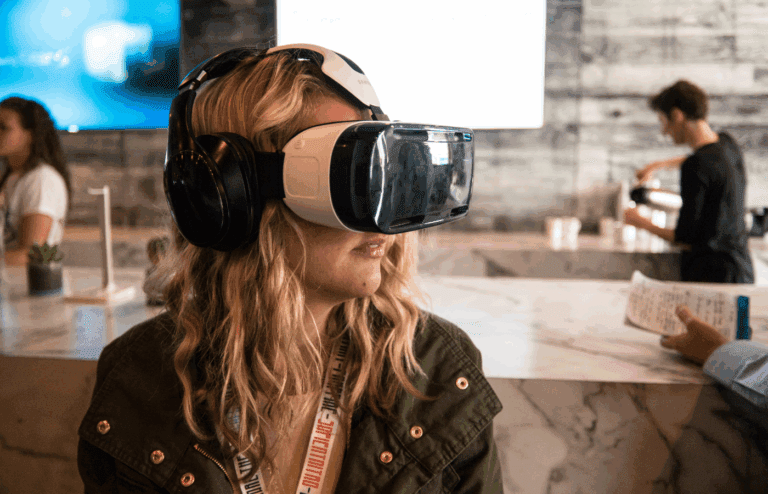In this article…
• The number of companies offering employees mental health days continues to grow.
• Taking a mental health day is a normal need and one that should not hold shame.
• Mental health days can be scheduled in advance to optimize and use them strategically.

For decades, employees have joked privately with one another stating: “I need a mental health day.”
However, most employees would be reticent to make such a statement to a supervisor, or even HR. That’s because there has long been a stigma when it comes to mental health. People don’t want their employer to get the notion that there is something wrong with them.
Because of the stigma, people don’t always openly express the real reason for taking a leave from work. However, one study showed two of the top three reasons were due to a challenge related to mental health.
Read More: Why Are Depression Rates Getting So Much Worse?
Some Companies and Schools are Helping to Stop the Stigma
A growing number of companies are putting forth the effort to remove the stigma that surrounds mental health. As such, they are offering their employees days off that are explicitly labeled as “mental health days.”
This trend is also filtering down into schools. In some US states, public school students are entitled to a dedicated number of mental health days each school year.
Changing the Conversation Around Mental Health
It is only now that our culture is beginning to have more conversations about mental health. In 2021, at the Summer Olympics in Tokyo, one incident started an international conversation about mental health.
American gymnast Simone Biles, the most decorated in history, suddenly opted out of the team final and stepped away for a “mental health break.”
Sadly, Biles also had to suffer from some of the stigma around mental health. Some called her a quitter and blamed her for costing the United States a gold medal, the Washington Post reported.
The backlash underscores the need to stop the shame, prejudice, and discrimination against people doing what’s necessary to improve their mental health.
Nonetheless, Biles returned from her mental health break in 2023 better than ever. She won her eighth US gymnastics title, breaking yet another record that had previously stood for 90 years. She also won her sixth world all-around champion, sixth world floor exercise champion, fourth world balance beam champion, and eighth US all-around champion. She also won a gold medal with the US team at the 2023 World Artistic Gymnastics Championships.
The takeaway is that mental health days help us regroup and come back refreshed and in a better state of mind to do whatever it is we do.
Read More: Easy Ways to Reduce Anxiety Naturally
6 Ways to Use Your Mental Health Days Strategically
Psychologists say that around one in four Americans is managing a mental health condition. The most common are anxiety, depression, or bipolar disorder. Individuals struggling with these conditions can benefit greatly from a pause from any activities that are exacerbating their issues.
Let’s look at several steps you can take to get the most benefit out of your mental health days. Here are ways you can use them strategically.
1. Schedule Your Mental Health Days in Advance if Possible
Granted, we can’t always predict when pressures will become more than we can bear. Sometimes an increase in significant mental health symptoms can occur with little warning.
However, whenever possible, if you feel pressures mounting, it could be a good time to schedule a mental health day in advance. This will help you continue with a reprieve in sight.
Another way of scheduling mental health days in advance is to consider any high-stress periods that are forthcoming. For example, at the end of the month or the quarter. However, this can also be problematic as we’ll discuss next.
2. Don’t Use Mental Health Days for Avoidance
This is going to seem like a contradiction with the previous advice of scheduling a break to coincide with a high-stress period. However, this is less of a contradiction and more of another viewpoint.
The problem with taking a mental health day to get around a stressful event is it reinforces avoidance. Sure, it alleviates tension in the short term. However, avoidance can actually reinforce anxiety. It can make such events even more troubling the next time around.
A good alternative is to go ahead with the stressful event. For example, a meeting with the supervisor. Just give yourself a break by scheduling the day after the event for a mental health break.
3. Make Plans for Your Mental Health Day
What you don’t want to do is nothing. Being idle can cause you to ruminate on your anxiety. Boredom can set in. Depression can increase.
The perfect mental health day for each individual is likely to be different. However, what’s recommended for the “perfect” mental health day is to do some activities you find enriching or rejuvenating. That might be as simple as a walk in the park.
4. Spend Time With Others Who Are Supportive
Being alone doesn’t always help anxiety. In fact it can make anxiety and depression worse. It’s better to be with others. And “being” with others doesn’t have to be in physical proximity. Sometimes we just need someone to listen.
Being with others who are supportive is a good way to spend your mental health day. This can be as simple as coffee with a friend. A phone call with a supportive friend or family member can also do the trick. A mental health day is also an excellent time to schedule a therapy session.
5. Release any Unwarranted Guilt or Shame
As previously discussed, there remains a stigma around mental health. Luckily, that stigma is slowly being chipped away.
There is no reason anyone should feel there is something wrong with them for needing a mental health break. There is no shame, guilt, or any type of negativity that should be associated with taking care of your mental health.
6. Mental Health Is Health
The bottom line is that mental health is health. Taking a mental health break is simply taking care of your health. It’s no different than caring for yourself through other activities such as diet, exercise, and sleep.








